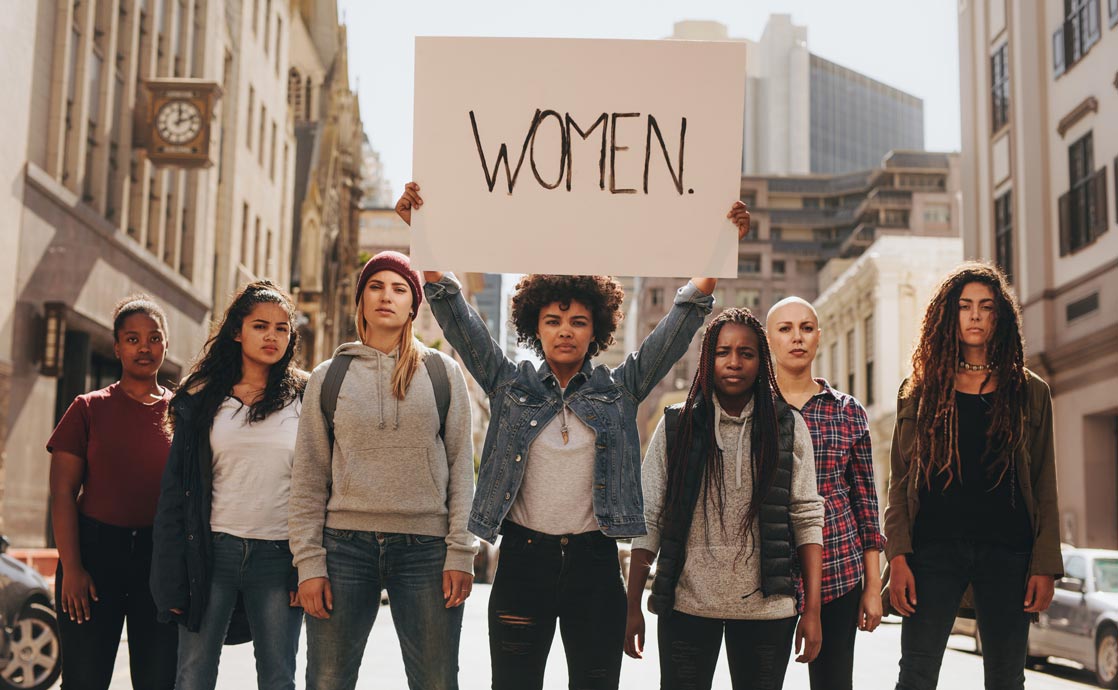In the late 19th and early 20th centuries, the world embarked on a pivotal journey toward gender equality, a movement that reverberates through the annals of history and manifests itself palpably in the Baha’i teachings. The centenary of women’s suffrage is not merely a historical marker; it is a clarion call for introspection and concerted action. The Baha’i Faith, with its foundational tenets advocating for equality and justice, provides a unique lens through which we can examine the triumphs and tribulations inherent in this struggle.
The principle of equality, as conceived in Baha’i teachings, extends beyond mere legal parity; it encompasses the profound understanding that the advancement of society hinges upon the harmonious collaboration between men and women. Baha’u’llah, the founder of the Baha’i Faith, unequivocally states that “the betterment of the world can be accomplished through pure and goodly deeds, through commendable and seemly conduct.” Thus, the suffrage movement, culminating in the right to vote for women, can be seen as an essential precursor to this envisioned betterment.
The metaphor of a vast tapestry is apt when exploring the intricate interrelationship between women’s suffrage and the Baha’i ideals of equality. Just as individual threads come together to create a unified design, so too do the diverse voices within the women’s suffrage movement weave into the broader narrative of social justice. This intricate weaving symbolizes the strengths found not only in the individual pursuits of women but also in their collective endeavors to uplift society as a whole.
The Baha’i perspective emphasizes that the emancipation of women paves the way for global transformation. The trials faced by suffragettes—ranging from social ostracism to outright hostility—mirror the resistance often encountered by those who advocate for progress. Yet, through their indomitable spirit, they have catalyzed an awakening within societies, prompting a re-evaluation of established norms. Within this context, we can perceive the historical struggle for women’s rights as not merely a challenge against oppression, but a profound journey towards self-realization and societal advancement.
Within the teachings of the Baha’i Faith, there exists a clarion call for unity in diversity. This principle encourages individuals to explore beyond the binaries of gender, race, and class. The intersectionality of women’s experiences, which encompasses various cultural, social, and economic factors, is crucial for understanding the breadth of their struggle. Thus, the Baha’i teachings implore humanity to embrace and celebrate this diversity as a means of enriching the collective experience and fostering a more inclusive society.
In 1928, Shoghi Effendi, the Guardian of the Baha’i Faith, proclaimed the principle of universal equality as imperative for any community striving to attain true progress. Such proclamations resonate deeply with the suffrage movement, suggesting that without recognizing and championing the rights of women, societal advancement remains stunted, akin to a tree deprived of one half of its branches. This imagery evokes interconnectedness; just as both branches and roots are essential for sustenance, so too are men’s and women’s contributions vital for a thriving civilization.
The Baha’i community has continually emphasized the importance of education in this pursuit of equality. Access to educational opportunities for women is a fundamental component of the Baha’i teachings, likening the act of educating women to the nurturing of seeds in fertile soil. There exists an inextricable link between education and empowerment; when women are educated, they are equipped not only to assert their rights but also to contribute meaningfully to the fabric of society. The activism born from this education echoes the ongoing efforts of modern feminists who challenge systemic inequities and inspire new generations of leaders.
The centennial celebrations of women’s suffrage also prompt a collective reflection on the progress achieved thus far, yet there remains a palpable urgency to address persistent disparities. It is vital to acknowledge that while suffrage granted women the right to vote, it alone does not encapsulate the complexities of achieving true equality. Glaring inequalities—whether in wages, representation, or rights—persist, serving as obstinate reminders of the work that lies ahead. The Baha’i principle of justice prescribes a holistic understanding of equality, necessitating active participation in all domains of public and private life.
The pursuit of equality is rendered a noble struggle, not just through the lens of women but through the prism of humanity as a collective. Acknowledging Baha’i teachings, the notion finds resonance in the belief that true justice encompasses the upliftment of all marginalized groups. The Baha’i commitment to social action and advocacy is thus not merely a passive endorsement of principles, but an active incitement to embody those ideals in action.
As we commemorate 100 years of women’s suffrage, we are beckoned to further the enlightenment that transcends celebration. This is a moment to galvanize efforts toward dismantling systemic barriers and fostering dialogues that prioritize equity. The Baha’i teachings guide this discourse, reminding us that while we remember the past, our ambition must ever be aimed at a future where equality is not just an aspiration but a lived reality. May this exploration inspire individuals to engage constructively in their communities, to affirm the interconnectedness of our struggles, and to embrace the profound potential that lies in the pursuit of equality for all.
